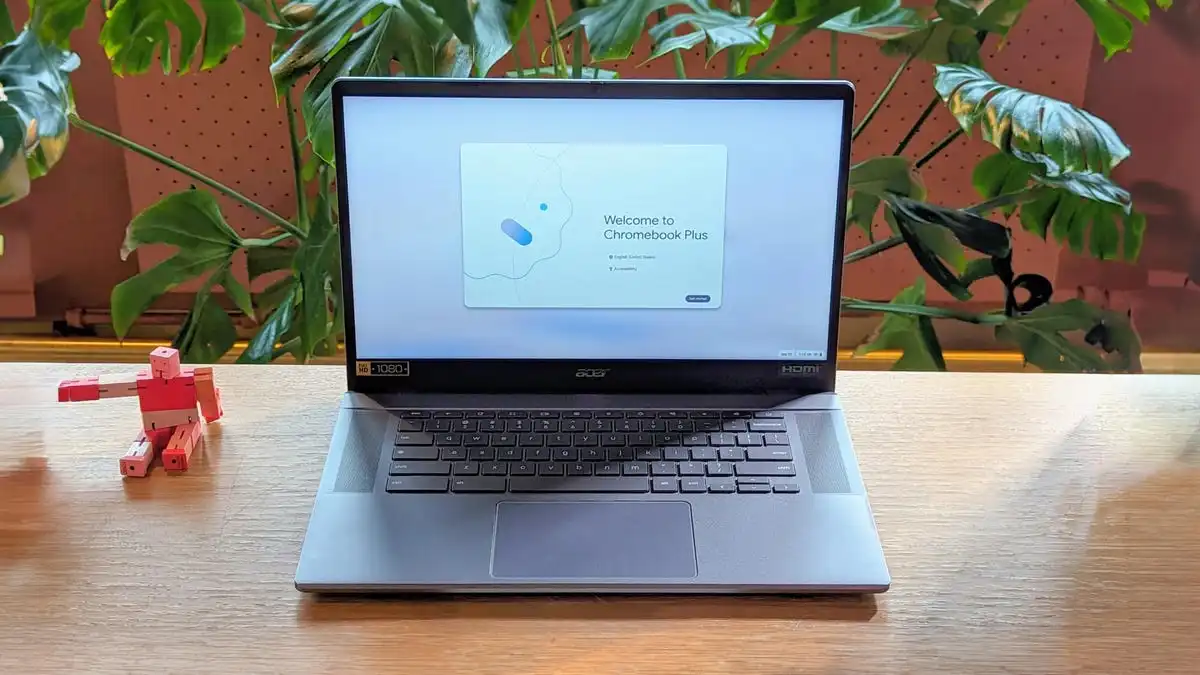Google Intros Chromebook Plus Devices With More Power, Apps and AI for $399
Google Intros Chromebook Plus Devices With More Power, Apps and AI for $399

Google Intros Chromebook Plus Devices With More Power, Apps and AI for $399

The new Plus category of Chromebooks is an assurance that you'll get a higher level of performance and features but still at a reasonable starting price.
With Chromebook Plus, you're guaranteed to get at least the following specs, with a starting price of $399:
- 12th-gen Intel Core i3 or AMD Ryzen 3 7000 processor or better
- 8GB or more of memory
- 128GB or more of storage
- 1080p-resolution IPS LCD or better
- 1080p webcam with temporal noise reduction
Unless you can easily upgrade the RAM, Storage, and replace the OS when it loses support, it's still ewaste.
Yes, installing Linux is possible, but it isn't easy. I put GalliumOS on my old high school Chromebook.
It is worth noting that they updated their support to be 10 years moving forward, so I disagree with the eWaste sentiment. I agree that Linux as a permanent alternative isn't super easy, and I say that typing from a Chromebook running Debian 12.
You can upgrade the RAM and storage on some of them. Installing either Linux or windows is also possible.
Possible != easy. Putting Linux on any old Windows PC is dead easy, takes not even half an hour. Linux on a Chromebook? Easily hour+ long headache on your first time.
ChromeOS is Linux.
Apple laptops you can't upgrade any of those things and they sell like hotcakes. It's really not something most people do.
Chromebooks have their niche, beyond education they're good as second laptops where you're really only doing mostly browser stuff. Mine is getting on a bit now, a 2017 pixelbook.. but it doesn't go EOL until next year and I'll probably keep it beyond that because it just works.. only thing I'd like really would be a bigger screen.
Which consumer desktop Linux distros have more than 10 years of updates?
All of them!
Linux and Linux distros are generally designed to be hardware-agnostic, and generally works just fine on very old components. I'm currently running the current version of Ubuntu on a used U1 server from ~2013, no issues, no headaches. It just works. Grab any Windows PC from the last 20 years, you won't have any compatibility issues running most Linux distros, though some distros might expect more performance. Linux Mint is fairly lightweight.
Debian has been around for 30 years. And on my non-Chromebook I can always install the latest version.
I just recently installed the latest version of Manjaro on a Dell XPS 15z from 2011. So Manjaro supports hardware from at least 12 years ago.
https://www.zdnet.com/article/the-oldest-linux-distro-just-got-a-major-update/
1993s slackware
This is an apples to oranges (or OS to hardware) comparison.
Lots of GNU/Linux distros have been receiving updates for decades now, although major releases do sometimes drop support for some hardware (typically an entire CPU architecture).
I don't think ChromeOS is saying they'll provide security updates for a 10 year old OS release (though maybe they are? but that wouldn't be very attractive to most people), rather they're saying "ChromeOS devices receive 10 years of updates.**" (with the ** being "For devices prior to 2021 that will receive extended updates, some features and services might not be supported.")
And of course, yes, many other distros current releases today do have excellent support for hardware that is a lot more than 10 years old.
I'm running Arch Linux in a 18 year old laptop. And I could and have run Debian in the very same laptop in the past.
I don't get your point at all. If laptops were as repairable as desktops, we could continue using them for 15+ years. And software support, thanks to the GNU/Linux distro maintainers, is not a problem.
I have a CR48 from 2010 that is running arch linux, is slow but completely workable.